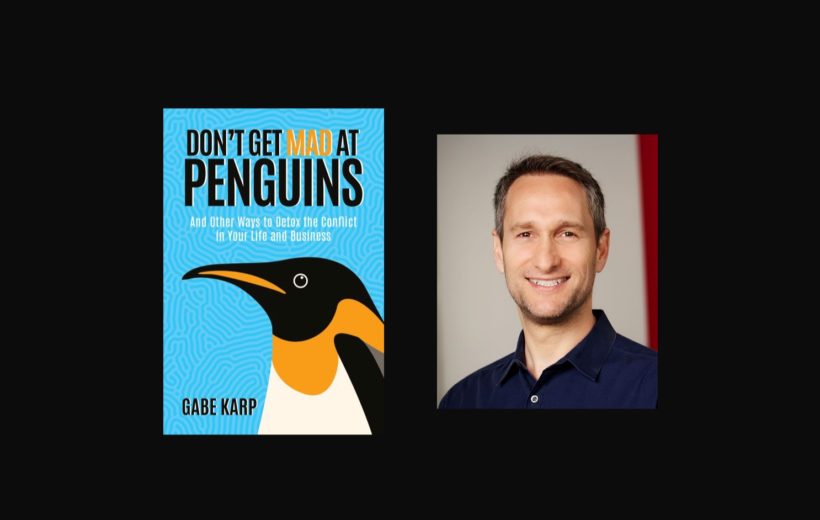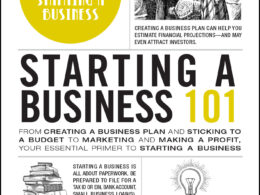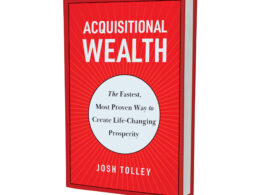The following is an excerpt from “Don’t Get Mad at Penguins: And Other Ways to Detox the Conflict in Your Life and Business” by Gabe Karp. Copyright 2022 by Post Hill Press.
“Gabe Karp, you look like shit,” Steve grinned as he swept into the waiting area. His bold remark caught me off guard. To be fair, I was coming off of an exhausting red-eye flight.
“Nice to meet you, too.” I shook his hand.
I was here to observe Steve’s company—let’s call it Vulcan Solutions—because it had the fastest rate of growth and the highest level of conflict out of any company in my dataset. On the surface, their business model was boring (they manufacture recyclable synthetic rubber for medical devices). But under that conservative facade, this company was buzzing with confrontation during every meeting and, somehow, this confrontational culture was working well for them. I wanted to get to the bottom of what they were doing, so I asked their CEO, Steve, to let me shadow him for a day. What I saw during that visit completely contradicts how most people think conflict works.
While healthy conflict propels people and organizations forward, toxic conflict slows us down and causes pain.
While most of us generally fear and avoid conflict, it’s a powerful asset for those who understand it. In fact, healthy conflict has been the greatest factor driving my success as a lawyer, entrepreneur and venture capitalist. I wrote this book to help others benefit from conflict in the same way.
Of course, not all conflict is productive. There is healthy conflict, and there is toxic conflict.
While healthy conflict propels people and organizations forward, toxic conflict slows us down and causes pain. It consumes an organization’s energy, taxing its ability to compete, grow and prosper. When conflict turns toxic, team engagements are painful, client relationships are strained and individual careers suffer. The same painful dynamics play out in our personal lives as well. Toxic conflict deprives us of the love, friendships, and relationships that we seek and need.
Toxic conflict, however, is far from inevitable. Just as we might go on a dietary cleanse to rid our bodies of toxins, we can do the same to detox our organizations and our minds—and when we do, the results are phenomenal. Once we cleanse the toxins, we suddenly feel energized to embrace conflict and leverage it to drive new innovation. We navigate difficult situations with ease and elevate our relationships to a higher plane. Detoxing our companies and our minds makes us better, stronger, faster and more connected.
The path that led me to this perspective began when I was a trial lawyer investigating the sources of conflict in my cases. I had a front-row seat to the conflicts of others, and I observed how certain communication styles always seemed to either improve or worsen a situation. In those days, a big part of my job was to control the level of conflict. During tense negotiations, I defused the conflict to help everyone relax and trust one another. During contentious cross-examinations, on the other hand, I amped up the tension when I wanted to rattle a witness or make a dramatic point to the jury.
While I served my clients well and achieved great results, I also suffered painful losses and struggled in difficult interactions with others for reasons I did not understand. Over time, I noticed the same patterns of conflict I’d seen in my cases play out in my personal life, too. I was identifying the toxins that build up in human interactions and make them unhealthy. When my clients and I were able to detox those interactions, we were successful in resolving the conflicts. But when the toxins were left unchecked, we were generally in for an expensive and painful experience.
Building a company from the ground up requires a lot of conflict.
When I joined a small startup called ePrize and saw these same toxic patterns play out in the business world, I knew I was onto something important. Building a company from the ground up requires a lot of conflict. But I noticed that when we detoxed those conflicts, they really propelled our business forward. When we engaged in nontoxic confrontations with employees, clients and shareholders, we achieved far superior results than when we avoided difficult issues or allowed toxins to infect interactions. This approach helped us grow our company into the world leader in the digital promotions industry. We acquired several smaller companies along the way and ultimately negotiated the sale of ePrize.
After our successful acquisition I entered the world of venture capital, where I’ve continued to experience the role of conflict on a broader scale. I have led the investments in and served on the board of directors of over a dozen companies, and I continue to witness the effects of both healthy and toxic conflict. I have negotiated business and financing deals in the hundreds of millions of dollars, and I’ve worked with CEOs to resolve conflicts ranging from clients wanting to cancel multimillion-dollar contracts to underperforming team members requesting pay raises, and everything in between. Regardless of how big or small the conflict, the same patterns play out over and over.
“Don’t Get Mad at Penguins” can be purchased via StartupNation.com below. For more from Gabe Karp, go to gabekarp.com.
Originally published April 26, 2022.






